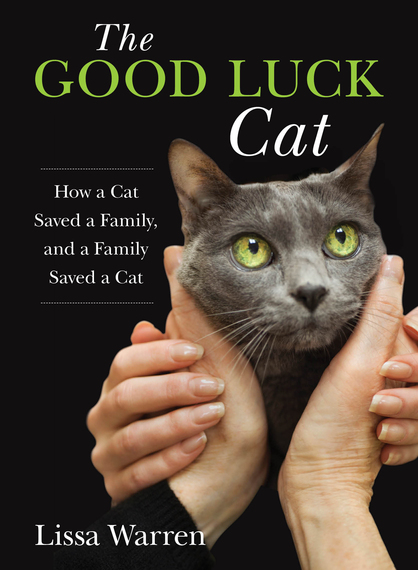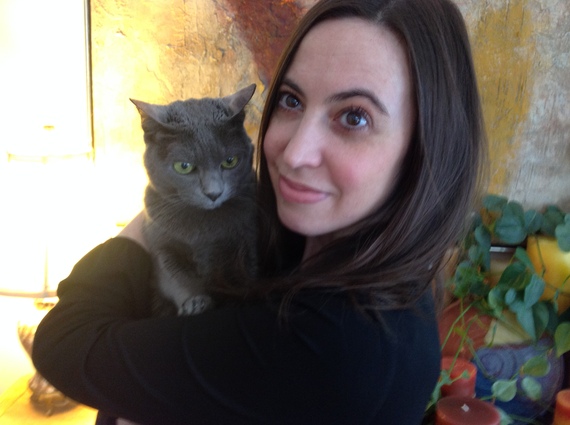Lissa Warren, author of The Good Luck Cat, shares her family's story to save Ting, the Korat cat her family adopted to keep her father company after he retired. Ting fast became her father's shadow. Shortly after losing her father unexpectedly to a heart attack, veterinarians diagnosed Ting with a deadly heart condition. Only a human pacemaker could save this beloved member of their family. Warren graciously shared with me some of her influences and experiences behind writing this moving story.
When did you know that Ting's story and your family's story needed to be told?
When our family cat, Ting, developed a life-threatening heart condition less than a year after my dad died of a heart attack--and was saved with the help of a human pacemaker--I knew it was a book-worthy story. But it took me a couple of years to know how to tell it--how to make it more than just a story of one family or one cat.
I see you are also a poet; what do you find different when writing poetry or non-fiction or vice versa?
I struggle to make my prose as lyrical as my poetry. The walls of a poem--the stanza breaks, the line breaks--force you to pay close attention to rhythm, and to choose your words precisely. I like the freedom of prose, but find it almost overwhelming. Some people find poetry stifling. I get that, but I like having confines when I write. I also like having readers, though. And poetry collections are a tough sell these days.
I saw one lovely reader reviewer on Amazon called your book, On Golden Pond Meets Garfield. As a longstanding fan of Garfield, I thought that was a pretty sweet review. What is the nicest compliment you've received about your work?
One of my publisher's sales manager's sent me an email saying the book moved him from tears to laughter within minutes...and in the next line he assured me he's not bipolar. It made me laugh. But I'm glad the book resonated with him. I also get a kick out of it when people tell me they like the book even though they prefer dogs to cats. I always tell them dog people and cat people are cut from the same cloth. Love is love, you know? And family is family.
You've worked in book publishing for most of your career. What surprised you about being on the other side of the transom?
Yes, all of my career, actually. I've been a book publicist for the past twenty years. I'm not sure being on the other side of things surprised me, but I can say that it has made me a more compassionate publicist. I know the sting of a bad review, the heartbreak of low turnout at a bookstore event. I "get" it now, in a way I otherwise wouldn't have. I'm grateful for that.
Do you have any advice to share for people with a unique family story to tell?
Let it simmer a bit. Then, when you start writing, keep looking for what makes your story universal, not what makes it unique. The unique will come through naturally. The universal will take more skill, more effort.
Many people are afraid to tell their personal story because they are afraid of what other people's reactions or exposing their family's secrets. How did you get past that challenge?
I wanted to write this book so much--as a tribute to my father, whom Ting adored; as a tribute to my mother, who set aside her own grief to nurse Ting back to health--that I didn't much care if people pegged me as some kind of crazy cat lady because of it. As for family secrets, we don't really have any. My family is insular and weird--but aren't all families, really? I'm not afraid to let folks see that.
What's next for you as a writer?
I'm toying with a couple of ideas. One is a prequel, of sorts, to my first book--The Savvy Author's Guide to Book Publicity. It'd be The Savvy Author's Guide to Getting Published--a soup to nuts on how to write a book proposal, how to get a literary agent, how to build your platform, etc. The other is a collection of essays or an anthology on "the beautiful ordinary," which is a phrase I use in The Good Luck Cat that seems to be resonating.


